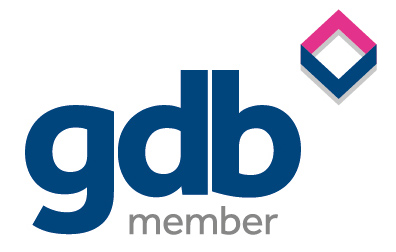Harvey John
Unit 2 Ferry Wharf
Hove Enterprise Centre
Basin Road North
Portslade, East Sussex
BN41 1BD
Understanding the Talent Challenge Within Professional Services
There’s a growing disconnect among tech talent in accountancy firms. This raises important questions about the future of innovation, competitiveness, and how professional services firms attract and retain the people driving digital transformation.
The world of professional services is evolving rapidly. A core part of this evolution has been the significant investment of both time and capital into digital transformation. It’s encouraging to see firms embracing new technologies and exploring innovative ways to remain competitive. In every corner of accountancy, finance, and tax, technology has reshaped job roles, business models, and hiring needs. Entire categories of roles – particularly across data science, software engineering, and AI – now exist where they didn’t a decade ago.
Why Tech Talent Is Slipping Away
We frequently hear about the large-scale investments firms are making into technology, with AI being today’s headline act. Yet behind these announcements, something troubling is emerging: the people driving these initiatives often feel undervalued, overlooked, and increasingly disillusioned.
Despite their tech-forward claims, professional services firms lag behind the more agile, innovative, and meritocratic culture of the broader tech industry. And that gap is growing.
Firms that have historically prided themselves on hiring ‘the best’ – with rigorous entry requirements and elite graduate pipelines – now struggle to retain that very same calibre of talent. Why? Because the brightest engineers, developers, and data scientists prefer the opportunities, autonomy, and rewards offered by the tech sector. This is no longer a simple battle for talent; it’s a battle for attraction. And in that battle, technology firms have had the upper hand for quite some time.
Where are firms falling short?
This issue becomes clear when speaking to those on the inside. I recently spoke with a Senior Manager at a Big 4 firm built digital platforms that now generate millions in recurring annual revenue. One product was so successful that it expanded beyond its original business unit, adopted widely across tax and, following that, audit.
Yet, despite this success, their path to a director-level promotion remains constrained by legacy frameworks that don’t recognise or reward entrepreneurial contribution. Their compensation, too, still reflected a standard Senior Manager role, disconnected from the commercial impact of what they’ve built.
Legacy Structures Are Holding Firms Back
Stories like this are common. They reflect a broader issue across the industry: technology adoption outpaces changes in career progression, recognition, and reward systems. While the tech sector moves quickly to empower and incentivise high-impact individuals, many accountancy firms cling to rigid hierarchies and outdated metrics of success.
What the Tech Industry Gets Right
Technology has long disrupted traditional career norms. The rise of millennial and Gen Z leaders in the tech world is a testament to how quickly talent can rise when ideas and outcomes matter more than tenure. If professional services firms want to build and retain world-class tech teams, they must confront the uncomfortable truth: their existing models of career development no longer fit a technology-led world.
The Senior Manager mentioned above is just one example in a growing cohort of technology-focused professionals within professional services who feel increasingly sidelined. If this continues, firms risk not just losing talent but also credibility in their ambition to lead in innovation.
The Human Pillar: Still Underinvested
When businesses undergo transformation, consultants often speak of four foundational pillars:
- People
- Process
- Technology
- Data
Yet from where we sit, there appears to be a recurring misstep: a widespread underinvestment in the ‘people’ pillar. While competing in technology, they pour money into platforms and tools, but overlook the human capital that truly sets them apart.
What Needs to Change
Until they fix this, accountancy firms will struggle to compete with the tech sector, not because of the technology itself, but because of the environment they’ve created for the people who built it.
Retaining top tech talent doesn’t have to be a challenge. If you’re rethinking how your firm attracts and rewards digital professionals, we can help. Let’s talk.
Author

From boutiques to the Big 4, and start-ups to multinational corporations, Alex manages a diverse portfolio of clients worldwide which has enabled him to develop a vast global network of indirect tax and tax technology professionals in 40+ countries.







